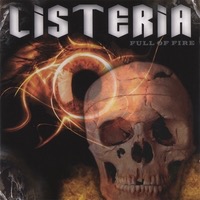Food safety experts, puzzling over the earliest days of Blue Bell Creameries’ response to a finding of listeria in some of its products, were confused.
 In mid-February, company workers began quietly reclaiming products from retailers and institutional customers such as hospitals. That was about a month before the iconic Texas-based ice-cream maker announced its first product recall in 108 years.
In mid-February, company workers began quietly reclaiming products from retailers and institutional customers such as hospitals. That was about a month before the iconic Texas-based ice-cream maker announced its first product recall in 108 years.
The stealth approach, called a withdrawal, came before any illness had been linked to the tainted ice cream. A withdrawal, which generally is used for minor problems, requires no broad notice to the public.
While the state health department called the withdrawal acceptable, some food safety experts are questioning why the public was not made aware of Blue Bell’s issues sooner.
“With something like this, I don’t understand how they got away with doing a withdrawal,” said Cliff Coles, president of California Microbiological Consulting Inc. “Withdrawal is not nearly as strong of language as a recall. If you knew that you had listeria, why wasn’t it a recall?
“I think they could have stepped up to the plate a whole lot quicker and done a whole lot more to protect the consuming public,” he added. “They pussyfooted around what they should have done in the first place.”
He and other food safety experts said they were unaware of any past cases in which a withdrawal, rather than a public recall, was used in a case in which a pathogen such as listeria was found in a ready-to-eat food.
Blue Bell, which first announced the listeria issue in a March 13 recall notice, has declined to go into detail about the withdrawal, citing pending litigation.
Blue Bell has been criticized for moving slowly to alert the public to the magnitude of its problem. The March 13 recall notice came as a terse, six-paragraph statement that pointed the finger at a specific production line that put out a “limited” amount of product. The release noted that “all products produced by this machine were withdrawn. Our Blue Bell team members recovered all involved products in stores and storage.”
 Asked if that means 100 percent of the amount distributed was reclaimed, and that none of the product ended up in the hands of consumers, the company declined to comment, citing pending litigation.
Asked if that means 100 percent of the amount distributed was reclaimed, and that none of the product ended up in the hands of consumers, the company declined to comment, citing pending litigation.
That’s a key point. Food safety experts said a withdrawal would only be appropriate if the company could guarantee that it could account for 100 percent of the product that left the plant.
“Even if one [listeria-tainted] box was sold, at that point, the mechanism is no longer withdrawal,” said Mansour Samadpour, president of Seattle-based IEH Laboratories, a food consulting firm. “It has to be a recall. You have to announce it so anyone who purchased it would know not to consume it.”
“The key there is 100 percent,” he said.
In emailed answers to questions from The Dallas Morning News, Blue Bell challenged the notion that it did not move quickly enough to protect public health.
“From the moment we found out about a presumptive positive [listeria] test on February 13, we began working with regulators and immediately retrieved (we call this a withdrawal) the products that were on the market, which had been produced on a specific machine,” the company said. “That machine was already down for maintenance, so no more products were produced on that machine, and it has since been retired.
“As soon as we were notified on February 13, we notified FDA, and began instructing our employees to recover the products in question, which had been distributed to institutional and retail sales accounts,” the company said. “We went to those account locations and withdrew the products.”
